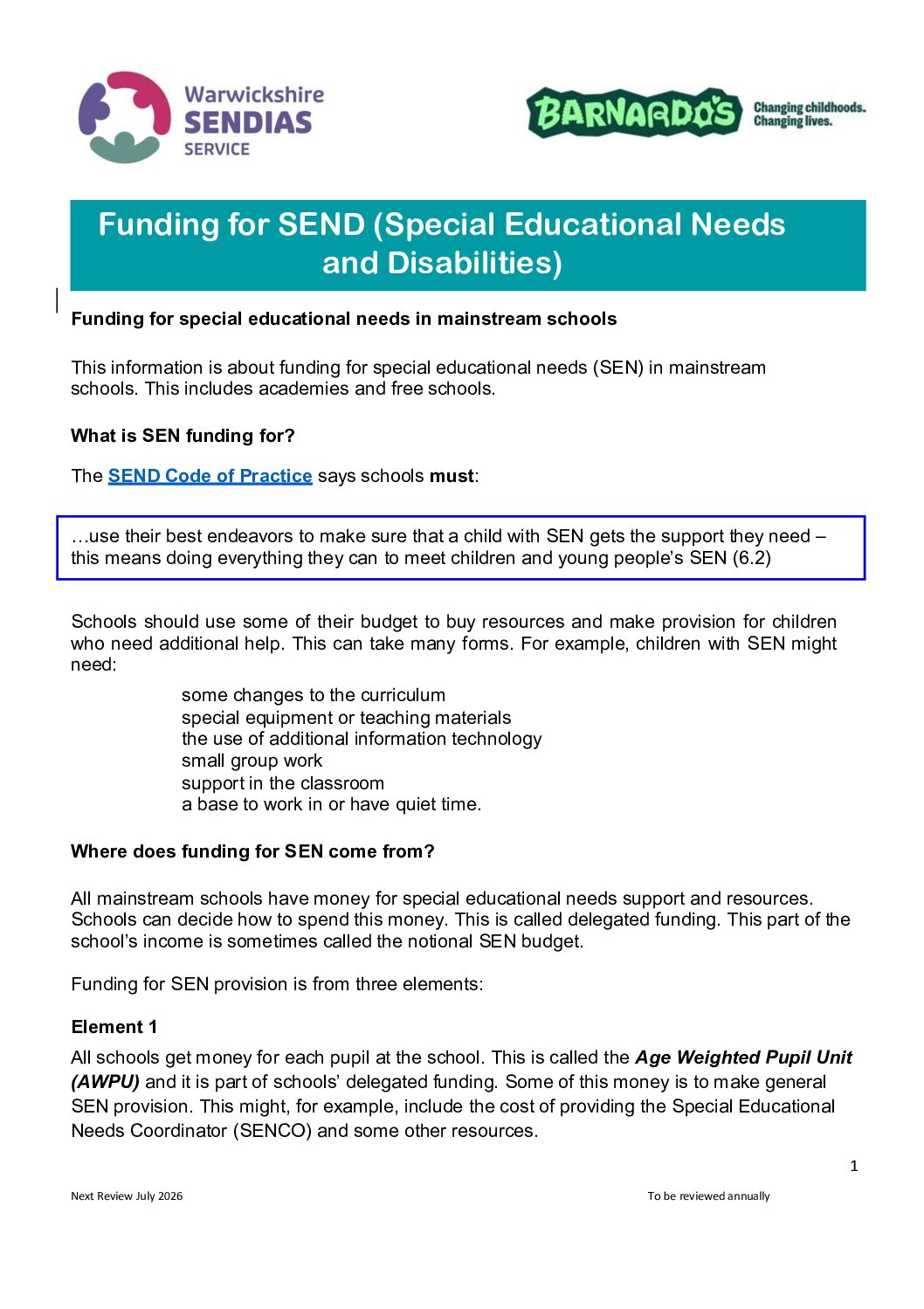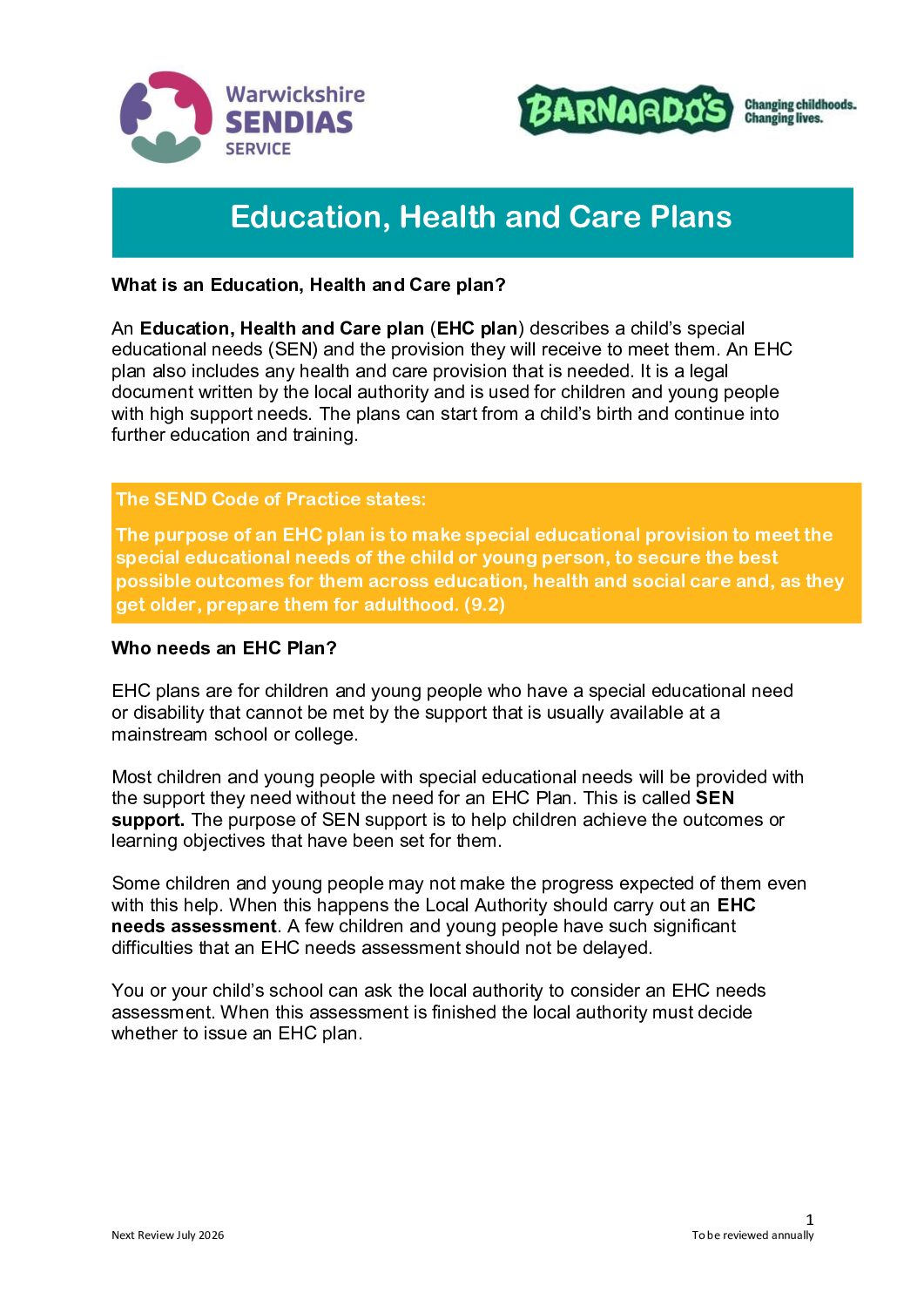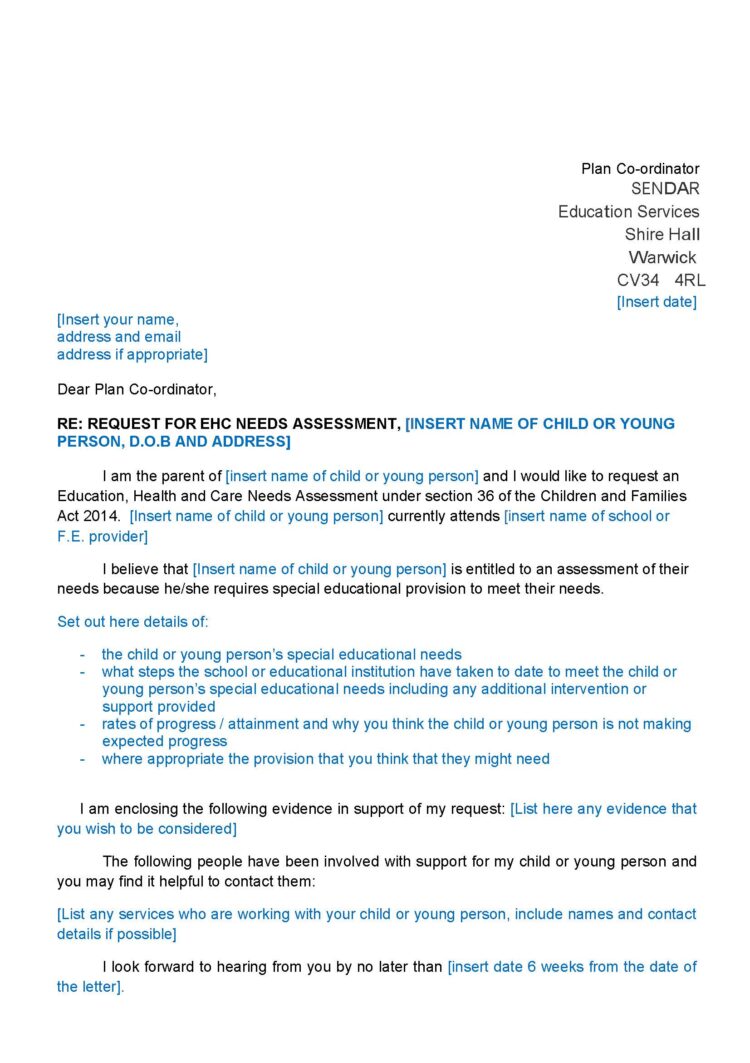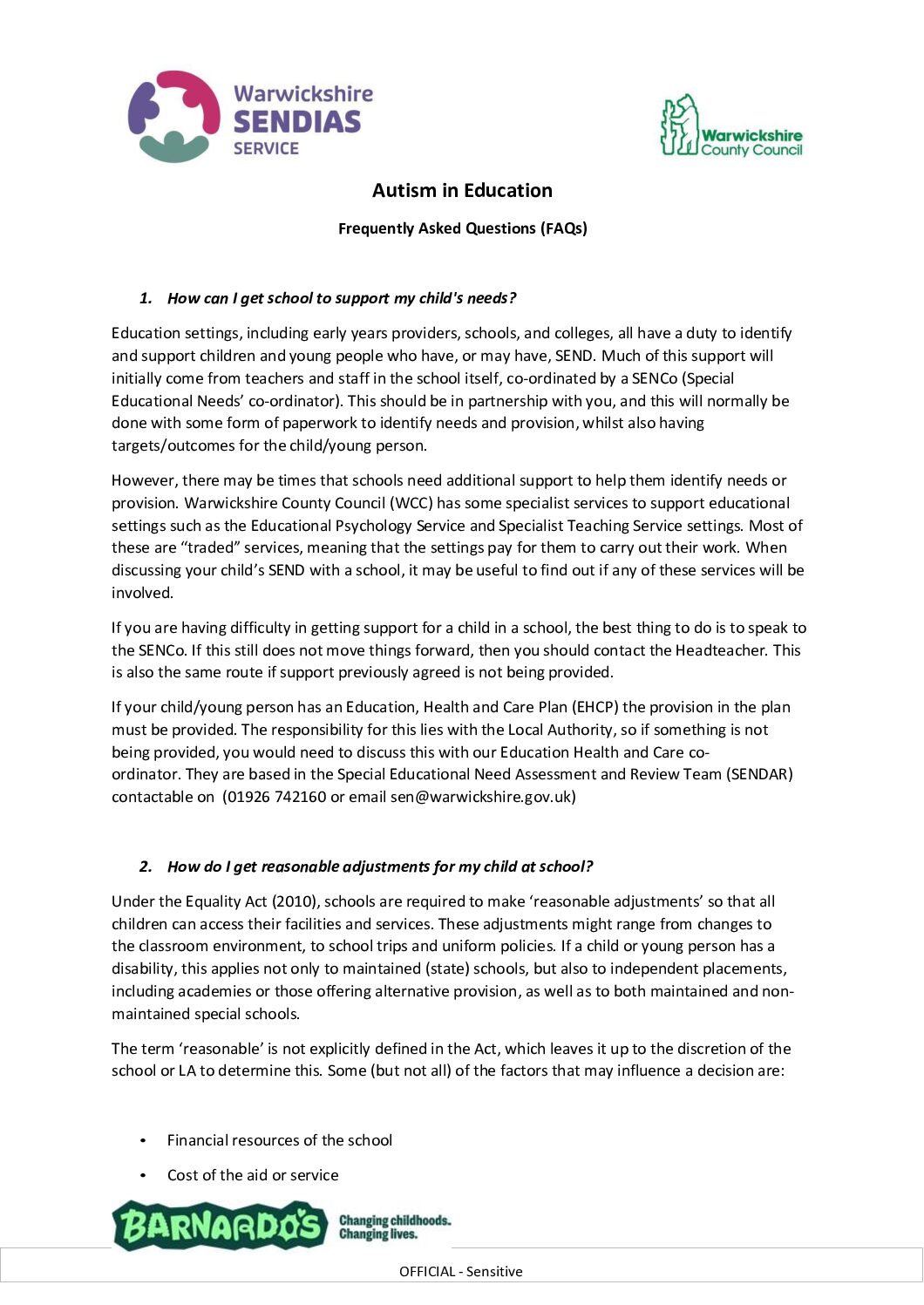PDF 244.48 KB
 Funding for SEND - Warwickshire 1
Funding for SEND - Warwickshire 1
Funding for SEND - Warwickshire 1
Funding for SEND - Warwickshire 1
 EHC_Plans_-_Warwickshire_SENDIAS
EHC_Plans_-_Warwickshire_SENDIAS
EHC_Plans_-_Warwickshire_SENDIAS
EHC_Plans_-_Warwickshire_SENDIAS
The EHC Needs Assessment
Education, Health and Care Plans
What is an Education, Health and Care plan?
An Education, Health and Care plan (EHC plan) describes a child’s special educational needs (SEN) and the provision they will receive to meet them. An EHC plan also includes any health and care provision that is needed. It is a legal document written by the local authority and is used for children and young people with high support needs. The plans can start from a child’s birth and continue into further education and training.
The SEND Code of Practice states:
The purpose of an EHC plan is to make special educational provision to meet the special educational needs of the child or young person, to secure the best possible outcomes for them across education, health and social care and, as they get older, prepare them for adulthood. (9.2)
Who needs an EHC Plan?
EHC plans are for children and young people who have a special educational need or disability that cannot be met by the support that is usually available at a mainstream school or college.
Most children and young people with special educational needs will be provided with the support they need without the need for an EHC Plan. This is called SEN support. The purpose of SEN support is to help children achieve the outcomes or learning objectives that have been set for them.
Some children and young people may not make the progress expected of them even with this help. When this happens the Local Authority should carry out an EHC needs assessment. A few children and young people have such significant difficulties that an EHC needs assessment should not be delayed.
You or your child’s school can ask the local authority to consider an EHC needs assessment. When this assessment is finished the local authority must decide whether to issue an EHC plan.
The SEND Code of Practice states:
In considering whether an EHC needs assessment is necessary, the local authority should consider whether there is evidence that despite the early years’ provider, school or post-16 institution having taken relevant and purposeful action to identify, assess and meet the special educational needs of the child or young person, the child or young person has not made expected progress. (9.14)
What does an EHC plan include?
The SEND Code of Practice says that EHC plans should:
– be based on decisions made openly, and with parents, children and young people
– describe what the child or young person can do
– be clear, concise, understandable and accessible
– consider how best to achieve the outcomes for the child or young person. They must take into account the evidence from the EHC needs assessment
– specify clear outcomes
– consider alternative ways of providing support if a parent or young person wishes it. This could include having a Personal Budget.
– show how education, health and care provision will be co-ordinated
– be forward looking – for example, anticipating, planning and commissioning for important transition points in a child or young person’s life
– describe how informal support as well as formal support from statutory agencies can help in achieving agreed outcomes
– have a review date.
There is a full list of principles and requirements in the SEND Code of Practice section 9.61.
Every EHC plan must include at least 12 sections, but each local authority can decide how to set these out.
The sections are:
A: The views, interests and aspirations of you and your child or the young person.
B: Your child’s or young person’s special educational needs.
C: Health needs related to their SEN or to a disability.
D: Social care needs related to their SEN or to a disability.
E: Planned outcomes for your child or the young person.
F: Special educational provision. Provision must be specified for each and every need shown in section B.
G: Any health provision required that is related to their SEN or to a disability.
H1: Any social care provision that must be made for your child or young person under 18.
H2: Any other social care provision required that is related to their SEN or to a disability.
I: The name and type of the school, maintained nursery school, post-16 institution or other institution to be attended.
J: Details of how any personal budget will support particular outcomes and the provision it will be used for.
K: The advice and information gathered during the EHC needs assessment
Where the child or young person is in or beyond year 9, the EHC plan must also include the provision required by your child or young person to help prepare for adulthood and independent living.
You can read the full list of what must be included in each section in the SEND Code of Practice sections 9.62 and 9.63. All young people with an EHC plan and all parents of children with an EHC plan can ask for a Personal Budget, you can find out more about in our ‘EHC Personal Budget’ guide.
How will I be involved?
The SEND Code of Practice states:
Local authorities must consult the child and the child’s parent or the young person throughout the process of assessment and production of an EHC plan. (9.21)
and
Reviews must be undertaken in partnership with the child and their parent or the young person, and must take account of their views, wishes and feelings, including their right to request a Personal Budget. (9.168)
Will there be a review of the EHC plan?
The local authority must review the EHC plan at least once every 12 months. This must be done in partnership with you and your child or the young person, and must take account of your views, wishes and feelings.
The local authority must decide whether to keep the plan as it is, make changes, or cease to maintain it within four weeks of the review meeting. You have a right of appeal if the local authority proposes to cease the EHC plan.
For some young people an EHC plan will continue until they are 25. However the plan will stop if the young person:
– goes to university
– gets a job
– tells their local authority they no longer want their EHC plan, or
– no longer needs special help and the local authority decides that the EHC plan should cease.
You can find out more about reviews of EHC plans at www.warwickshire.gov.uk/SEND and by reading our Annual Review information sheet.
What happens if I move to another local authority area?
If you plan to move to another local authority area you should contact the ‘old’ and the ’new’ local authorities so the support specified in the EHC plan will be in place. The ‘new’ authority will amend the plan and name the new school or college.
The ‘old’ local authority must transfer the EHC plan on the day of the move, as long as it has had 15 working days’ notice.
DownloadPDF 244.48 KB
 Funding for SEND - Warwickshire 1
Funding for SEND - Warwickshire 1
Funding for SEND - Warwickshire 1
Funding for SEND - Warwickshire 1
PDF 62.03 KB
 Template_Parental_Request_Letter
Template_Parental_Request_Letter
Template_Parental_Request_Letter
Template_Parental_Request_Letter
Useful template letter with prompts for parents or carers (with parental responsibility) and young people to request an EHC Needs Assessment.
PDF 299.17 KB
 WCC Autism FAQs (3)
WCC Autism FAQs (3)
WCC Autism FAQs (3)
WCC Autism FAQs (3)